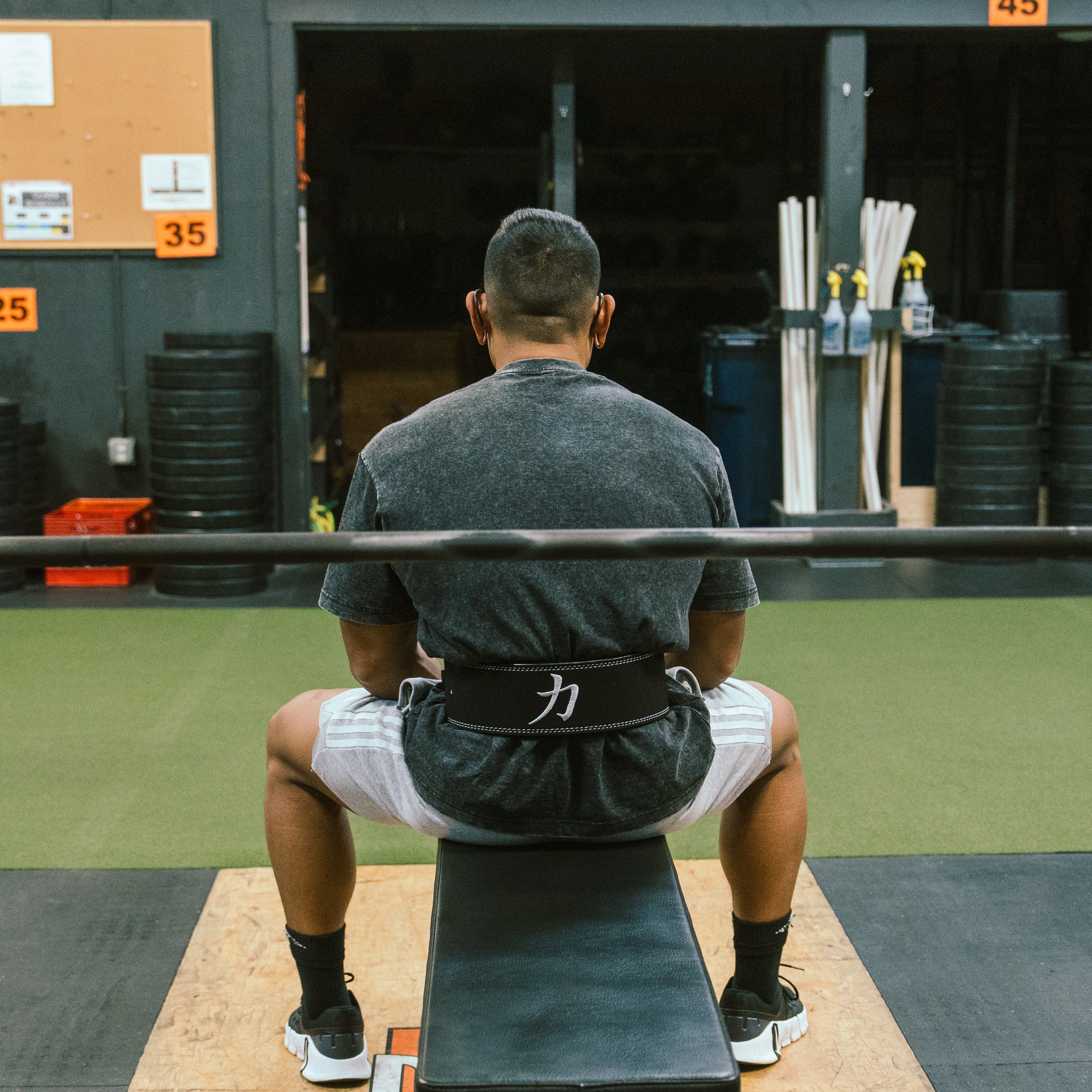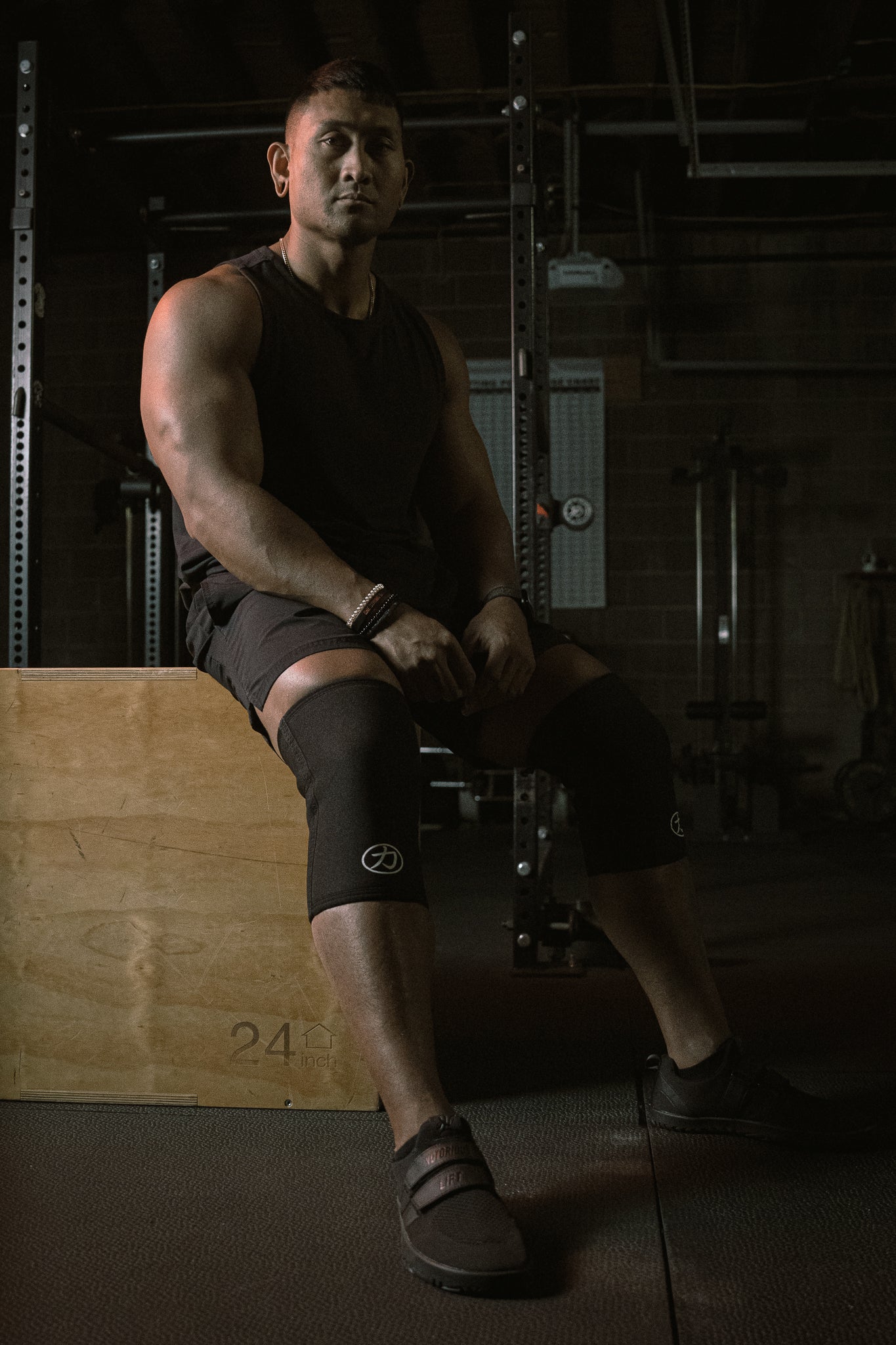Strongman competitions are demanding but rewarding. Since my first contest in 2008, I've learned what it takes to stay the course, from mastering strongman equipment to maintaining health. I'm sharing my insights into longevity in strength sports with you.
My First Strongman Competition
My first strongman competition was on August 23, 2008, in Cleveland, Ohio. I watched the Lions play the Browns in a preseason game just after they drafted Matthew Stafford with the #1 pick following their 0-16 season. Walking up and down stadium stairs after your first contest (or any contest) is precisely as fun as you'd expect, but I digress.
I've done over 100 more (I honestly lost count), never competing less than 10 times in any given year from 2009 until 2017. I've competed in 17 states and Australia. Somewhere along the way, I learned to rely on the right gear—powerlifting belts, weightlifting shoes, wrist wraps, and even an AIRVAAW mouthpiece—to keep me in the game.
I tore my left rotator cuff in 2017, had surgery to repair it … and still competed three times post-surgery. I finally started keeping it under 10 yearly contests at my wife's request. I think the high-water mark was 16. I did 4 in 5 weeks, which was as stupid as it sounds.
Do Strength Sports Really Help You Live Longer?
Can lifting heavy help you live longer? It just might. Strength sports and resistance training reduce your risk of chronic diseases, improve your balance, and keep your metabolism running strong. While lifting won't make you immortal, it stacks the odds in your favor for a longer, healthier life. Plus, it's a good way to enjoy your time.
Here are some studies worth noting:
Strength Training and Mortality Reduction
In 2022, a study in the British Journal of Sports Medicine examined data from nearly 100,000 people aged 55 to 74. The results? Lifting weights was tied to a 9% to 22% lower risk of death.
Translation: Picking heavy stuff suits your muscles and could help you stay longer. If that's not a reason to add strength training to your routine, I don't know what is.
Muscle-Strengthening Activities and Disease Prevention
The same study also found that muscle-strengthening activities cut the risk of all-cause mortality, cardiovascular disease, cancer, diabetes, and lung cancer by 10% to 17%.
The sweet spot? Just 30-60 minutes of resistance training a week. Lift a little, live a lot longer — it's that simple.
Combined Aerobic and Strength Training Benefits
A 2022 study in JAMA Network Open examined physical activity data from over 115,000 people aged 65 and up. It found that combining strength training with aerobic exercise significantly reduces the risk of death.
The takeaway? Don't just lift weights—add some cardio, too. Together, they're a one-two punch.
Ranking Strength Sports for Your Life Span
Powerlifting is probably your best shot at living longer. The controlled environment and focus on progressive overload make it easier on the body and more sustainable over the long haul. Invest in a good powerlifting singlet to support your performance and stay comfortable.
Strongman, on the other hand, is a beast. The variety of events and the use of strongman equipment like stones, yokes, and farmer's handles make it fun as hell but brutal on the joints and muscles over time.
Olympic weightlifting lands somewhere in the middle. The precision of the lifts helps limit wear and tear if you're careful, but years of explosive movements will still take their toll. A high-quality pair of Olympic weightlifting knee sleeves will help you here.
If staying healthy and sticking around is your goal, focus on smart training and playing the long game.
Promoting Strongman Contests
I started promoting contests in 2013. I've promoted over 20 since then, including the first strongman contest for athletes with disabilities ever held in the United States and the largest single-venue competition in the sport's history (at least at the time of this writing). On that last one, we got 400-odd athletes through 5 events in 9 hours flat. Suffice it to say, I have been at this for a little while and have done a thing or two.
The People Who Stick Around in Strength Sports
In the 11 years I have been competing and promoting, I have seen many people come and go. Of the training crew I started in 2008, I wouldn't need both hands to count the number of guys still training or all the fingers on one hand to count the guys still competing.
Why Do People Wash Out of Strongman?
If I had a dollar for every guy who started training and claimed he would be on World's Strongest Man within 5 years, I could own my private island and be sipping pina coladas while writing this.
I have nothing against the people who leave my beloved sport for whatever reason. I get it. It's a challenging sport; you'll get bruised, battered, and occasionally broken. Life happens, and sometimes, that requires a change in focus.
I see too many people diving in without understanding the need for smarter training. Techniques like accommodating resistance could save their joints, but many skip that, go all out, and burn out quickly.
How to Stick Around in Strength Sports
Here's my advice for finding longevity in strength sports:
Don't Take the Sport Too Seriously
This is a hobby for 99.99% of participants. The odds are high that you won't become the next World's Strongest Man or Woman. If you lose the joy of the sport, you'll wash out quickly. Work hard because you love it, and never forget to have fun.
Focus on Yourself, Not Others
Your main competition is always yourself. Measure your progress against where you used to be, not the best in the world. Use others' achievements as inspiration, not a source of discouragement.
Don't Sacrifice Everything
You don't need to give up everything to succeed. Like Brian Shaw and Nick Best, many top athletes balance family life with competition.
Keep Kids in Perspective
Don't stop pursuing your passion because you have children. Show them the value of hard work, resilience, and pursuing goals while compromising for your family.
Stay Involved
Keep participating in the sport in any capacity. Compete regularly, promote contests, or help other promoters. Stay connected to the community and enjoy the camaraderie.
Handle Injuries with Perspective
Injuries happen in strength sports, but they don't have to end your journey. Take care of yourself, use the correct type of lifting belt, learn how and when to use lifting belts, recover, and find ways to continue enjoying the sport even as your competitive level changes.
To stay for a decade or more, you must maintain the proper perspective, enjoy the ride, and stay involved in any way you can.
Lift heavy, laugh often. May you still be around in another 10 years!
Frequently Asked Questions
How does strength training increase longevity?
Strength training increases longevity by reducing your risk of chronic diseases, improving muscle mass and bone density, and lowering the chances of injuries like falls as you age.
Is strength related to longevity?
Yes. Strength is strongly related to longevity, as higher muscle strength is linked to reduced mortality risk and better overall health outcomes.
What sport contributes to longevity?
Sports like strength training, swimming, and cycling contribute to longevity by improving cardiovascular health, muscle endurance, and overall physical function.
Which sport has the best longevity?
Strength training offers the best longevity benefits because it preserves muscle mass, maintains bone health, and prevents age-related physical decline.



















